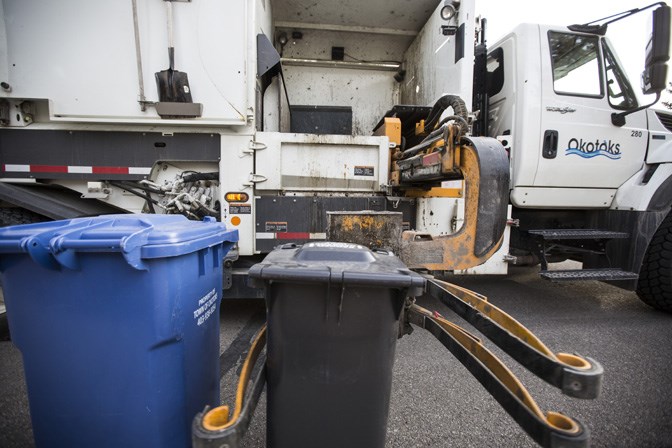Getting waste to the curb could get a lot easier in the next few years if Waterloo region moves away from manual curbside garbage pick up to an automated cart collection system.
The recommendation will be discussed next week as the region prepares to tender bids for a new waste contract beginning in 2026.
A report headed to regional council's planning and works committee outlines several factors that are impacting how waste, green bin organics and recycling will be collected in the future, including the 2024 switch to producer funded recycling.
Among the suggested changes that could be coming as part of a new contract is a change to a four-day collection schedule and the automated cart collection system.
The cost of converting to automated cart collection for garbage and green bin hasn't been fully priced, but the region's waste management capital program already includes $24.55 million in the 2025 to 2032 budget for the acquisition of carts.
Any costs associated with the acquisition of new vehicles with the built-in mechanics for cart collection will be included in bids submitted by private sector service providers when the region issues a request for proposals this summer.
Part of that RFP will recommend vehicles that use alternative fuel sources like natural gas to align with the region's strategic plan and reduce green house gas emissions.
Staff say a small portion of vehicle-related capital costs can be recovered from future development charges.
The last contract for waste collection in Waterloo region was signed in 2017 and expires in March of 2026.
As councillors look to the future of waste collection in the region, this year will remain status quo for curbside collection with garbage collection limited to three bags for residences, picked up every other week.
The 2023 budget for curbside collection is $24 million.
The region provides curbside collection to about 161,000 single-family homes, duplexes and three to six unit buildings, and 8,500 multi-family units and townhouse complexes that meet truck access criteria.
About 41,000 multi-family units receive recycling services only, using larger capacity carts on a weekly basis.
The report says about 1,500 businesses in Cambridge, Kitchener and Waterloo currently get premium service, six-day-a-week garbage collection with a 10-bag limit and weekly recycling pick up.
Most of the collection done now is manual, but challenges around staffing recruitment and retention are making it difficult for municipalities to stick to manual waste collection, the report says.
Adverse weather, the physicality of the job and health and safety risks are all factors adding to the challenge of finding competitive bids from service providers for the job.
Staff say moving to automated cart collection, like the City of Guelph, would reduce many of those factors and make the collection more efficient.
For residents, it would reduce the amount of blow-away litter on windy days and keep pests like rodents from getting into garbage. Residents would simply fill each bin as required and roll it to the curb on collection day.
Items such as bulky or large metal items, yard waste and Christmas trees will continue to be collected manually.
A four-day collection schedule running Tuesday to Friday would reduce collection on statutory holidays, which are typically Mondays, add an extra day for back up collections necessary for weather disruptions, allow for better planned routes and improve staff recruitment and retention, says the report.
In March 2024, blue box and cart recycling collection will become the responsibility of producers through an organization called Circular Materials Ontario (CMO).
It's still undecided whether the region or the CMO will be doing the collecting during a transition period that runs to the end of 2025.
Staff say they are still in discussion with producers to determine if the region will administer blue box collection services on behalf of producers as part of the next curbside collection contract starting in 2026.
Any changes to curbside waste collection will be communicated through an "extensive communication campaign" designed to inform and educate impacted residents, businesses, and properties.



